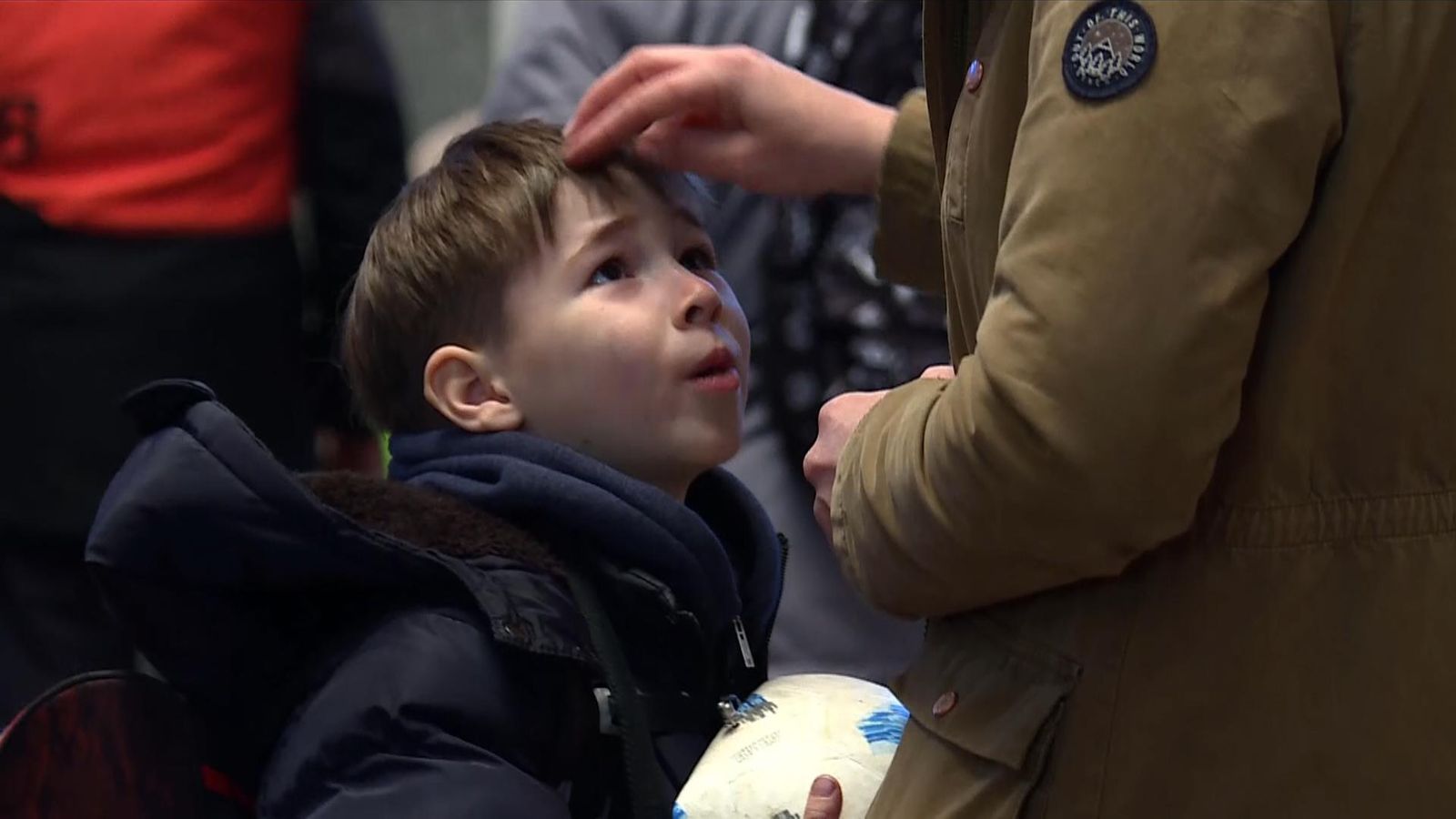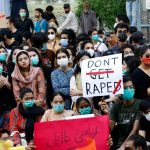At a railway station in Lviv, almost 800 people evacuated from the besieged Ukrainian city of Mariupol arrive with disturbing stories to tell.
Bombs are dropping over the port day and night.
On the ground, brave civilians are risking their lives to send pictures to the outside world.
But the city is now largely without power, internet and a phone signal, limiting their ability to get those images out.
And so those escaping are the ones we increasingly rely on to report what is happening there.
We meet Alina Horhul, 27, who got away five days ago. When a maternity hospital was bombed in the city on 9 March, she heard the explosion.
But she had no idea what had been hit until now.
The situation is worse than we can possibly imagine, Alina tells us. She breaks down in tears. Several of her friends have died and one of her aunts is missing.
“You can’t even imagine how many children are there – so many children,” she explains. “There was a six-day-old and a three-month-old in the shelters.”
She adds: “Two little girls became orphaned and watched their father dying. The neighbours have taken them in. They are still in Mariupol because they cannot leave.”
I also meet Olena and her seven-year-old son, Nikodym, who is clutching his prized possession – a deflated football.
The family fled the capital, Kyiv, after Nikodym became terrified by the attacks in the city. His face is emotionless and he sits quietly on a bag of bedding. I worry about what is going through his mind.
Read more: What are the chances of a peace deal with Russia to end the conflict?
“There were bombings, it was very loud,” Olena says. “We saw and heard shootings on the streets. A bus with army cadets was shot at. My son couldn’t bear it anymore, emotionally. He couldn’t sleep at night.”
Ten million people have become homeless in Ukraine since the war began. The majority fleeing the fighting are coming from the south and east.
Please use Chrome browser for a more accessible video player
But one man, clearly injured, has come from the other direction. Denis, who serves in the Ukrainian army, was hurt in the bombing of a military training base 15 miles from the Polish border a little over a week ago – the closest attack to NATO territory so far.
“A lot of people died but we are still alive,” Denis tells us. “As for my injuries, I have a fracture of the facial bone, jaw injury, shattered elbow and some bruises. I want to recover as soon as possible and then to continue fighting.”
There are stories of sadness and suffering everywhere. But there is no greater sense of urgency than over the humanitarian catastrophe developing in Mariupol.
More than 1,000 civilians are still thought to be trapped under its rubble in a theatre, rescue workers unable to reach them because of continuous shelling.
Follow the Daily podcast on Apple Podcasts, Google Podcasts, Spotify, Spreaker
Having recently escaped the hell of that city, I ask Alina if she has a message.
“The most frightening thing is that the world will forget about Mariupol,” she says.
“That you will talk about us for a day, two days and then Mariupol citizens will be just dying there in the basements.”






















